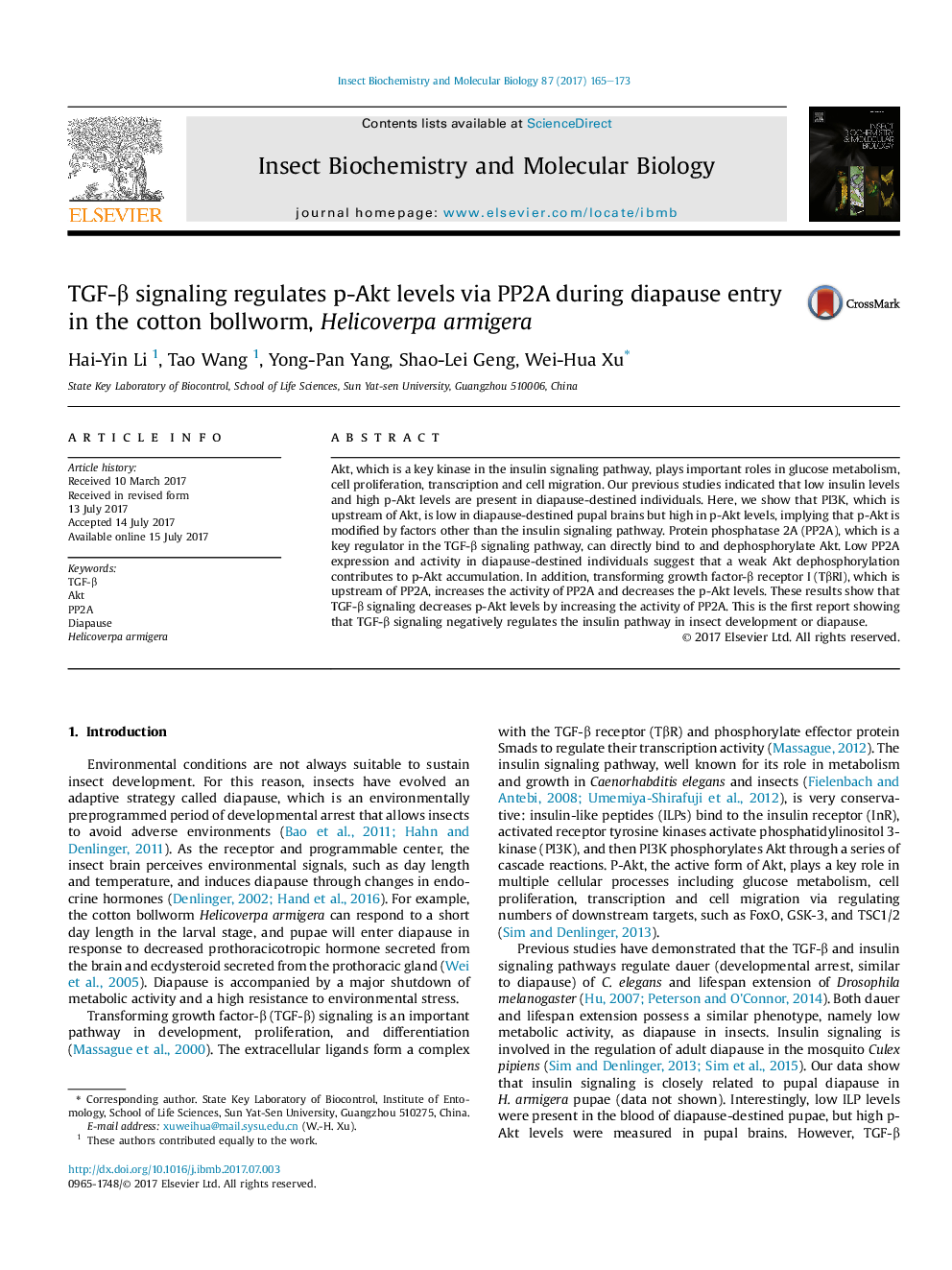| کد مقاله | کد نشریه | سال انتشار | مقاله انگلیسی | نسخه تمام متن |
|---|---|---|---|---|
| 5511143 | 1539465 | 2017 | 9 صفحه PDF | دانلود رایگان |

- TGF-β signaling regulates insect diapause via the insulin pathway.
- PP2A-Bâ² dephosphorylates Akt during insect development.
- TGF-β signaling negatively regulates p-Akt levels by elevating PP2A activity.
Akt, which is a key kinase in the insulin signaling pathway, plays important roles in glucose metabolism, cell proliferation, transcription and cell migration. Our previous studies indicated that low insulin levels and high p-Akt levels are present in diapause-destined individuals. Here, we show that PI3K, which is upstream of Akt, is low in diapause-destined pupal brains but high in p-Akt levels, implying that p-Akt is modified by factors other than the insulin signaling pathway. Protein phosphatase 2A (PP2A), which is a key regulator in the TGF-β signaling pathway, can directly bind to and dephosphorylate Akt. Low PP2A expression and activity in diapause-destined individuals suggest that a weak Akt dephosphorylation contributes to p-Akt accumulation. In addition, transforming growth factor-β receptor I (TβRI), which is upstream of PP2A, increases the activity of PP2A and decreases the p-Akt levels. These results show that TGF-β signaling decreases p-Akt levels by increasing the activity of PP2A. This is the first report showing that TGF-β signaling negatively regulates the insulin pathway in insect development or diapause.
178
Journal: Insect Biochemistry and Molecular Biology - Volume 87, August 2017, Pages 165-173